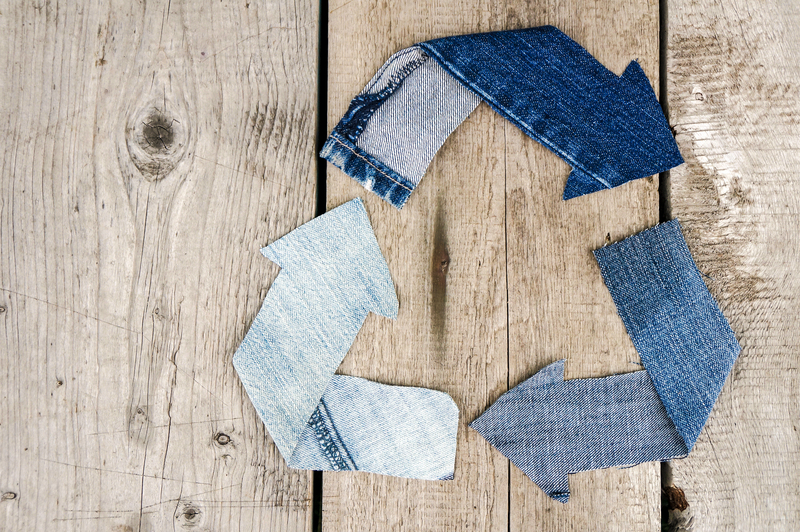Top spots to donate or recycle outdated chargers
Posted on 10/06/2025
Top Spots to Donate or Recycle Outdated Chargers
Outdated chargers--from cell phones, laptops, to various electronic devices--often pile up in drawers or closets, long forgotten. But did you know that proper disposal through recycling or donation can make a significant difference for the environment and even help communities in need? In this comprehensive guide, we'll explore top places to donate old chargers, best methods to recycle used chargers, and give you helpful tips for managing your electronic waste responsibly.
Why Recycle or Donate Outdated Chargers?
Old chargers contain valuable materials like copper, aluminum, and plastics, as well as potentially harmful elements. Improper disposal can lead to environmental pollution, while donating or recycling outdated chargers helps conserve resources, support communities, and reduce electronic waste. Here's a closer look at the benefits:
- Environmental Protection: Safely recycling chargers prevents hazardous chemicals from contaminating soil and water.
- Resource Conservation: Donated chargers might be refurbished or parts reused, extending their life cycle and saving raw materials.
- Supporting Charities: Several organizations refurbish usable chargers for people in need or sell them to fund their missions.
- Legal Compliance: Some regions have e-waste regulations that encourage responsible disposal of electronics.

Top Spots to Donate Outdated Chargers
1. Goodwill and Nonprofit Thrift Stores
Many people are surprised to learn that Goodwill and similar charities accept donations of chargers and cords. These outlets either sell them at discounted rates or partner with recycling programs for proper processing.
- Ensure your chargers are clean and in working condition before donating.
- Contact your local branch to confirm what types of electronic accessories they accept.
2. Local Schools and Community Centers
Schools and community organizations often collect gently used chargers for students or patrons in need--especially for devices that require specific connectors.
- Check with IT departments or donation drives for compatibility requirements.
- Some community centers offer e-waste drop-off days, where you can bring chargers, cables, and related electronics.
3. National Charities and Collection Drives
Several national organizations periodically run electronics recycling drives or accept mail-in donations of old chargers:
- Cell Phones for Soldiers: Donates phones and accessories (including chargers) to military members and helps fund calling cards for troops.
- Cooperative Extension Offices: Many university programs collect old electronics to promote environmental stewardship and digital access.
- Local Shelters: Women's shelters, shelters for the homeless, or refugee resource centers often need chargers for donated phones and tablets.
Top Spots for Recycling Used Chargers
1. Manufacturer Take-Back Programs
Many device makers offer charger recycling programs to encourage responsible disposal:
- Apple Recycling: Apple accepts used chargers, cables, and devices at Apple Stores and via mail-back programs. Visit the Apple Trade In site for details.
- Samsung Recycling Direct: Drop off Samsung-brand chargers and accessories at participating locations or request a mail-in label.
- Dell Reconnect: In partnership with Goodwill, Dell recycles all brands of e-waste, including bulk cables and chargers.
2. Major Retailer E-Waste Bins
Large retailers frequently have e-waste recycling stations near store entrances for small electronics and accessories, including:
- Best Buy: Accepts cables, cords, and chargers at most USA locations.
- Staples: Recycles many types of electronics and offers periodic trade-in events.
- Office Depot/OfficeMax: Electronic recycling through prepaid boxes or in-store collection points.
Before visiting, check for current program details, accepted items, and whether there are any fees or limits.
3. Municipal E-Waste Facilities and Events
Most cities and towns host municipal e-waste collection points or semi-annual events for safe recycling of old chargers. These are among the best options for handling bulk outdated cords, adapters, and similar accessories.
- Check your town's website for collection dates and drop-off locations.
- Some regions require proof of residency or restrict what can be recycled, so plan ahead.
4. Electronic Recycling Companies and Drop-Off Centers
There are specialized companies and nationwide chains that focus on electronic waste recycling. Some top options include:
- Call2Recycle: Find drop-off sites via their locate tool. Some sites accept chargers along with rechargeable batteries.
- e-Stewards and R2 Certified Recyclers: Industry-certified recycling companies that meet strict environmental and safety standards. Search for local partners on their official websites.
- Earth911: Use their recycling search tool to find facilities by zip code accepting cables and chargers.
What To Do Before Donating or Recycling Your Chargers
For the greatest impact, follow these quick tips for preparing chargers for donation or recycling:
- Inspect for damage. Only donate fully functional chargers; recycle those with frayed cords or missing parts.
- Clean your chargers. Wipe down with a dry or slightly damp cloth to remove dust and debris.
- Bundle with matching devices, if possible. If you have the device the charger came with, consider donating both together.
- Organize by type. Sort Apple Lightning, USB-C, Micro-USB, and proprietary laptop chargers for easier hand-off or drop-off.
- Check for local needs. Before heading to a thrift shop or charity, call ahead to see if there's a particular demand for certain charger types or brands.
Creative and Responsible Alternatives for Outdated Chargers
Not all out-of-date chargers have to be discarded. Here are some creative and green options:
- Repurpose at home: Old chargers can be used as backup adapters, given to friends or family, or used in travel bags.
- Arts and crafts: Crafters and artists sometimes use electronic waste--like cords and cables--for DIY projects or educational workshops.
- Upcycle organizations: Community upcycling groups may accept chargers for innovative reuse instead of recycling.
Questions and Answers About Donating or Recycling Chargers
Are chargers considered electronic waste?
Yes, outdated chargers and cables are classified as e-waste, as they contain electronic components and should not be thrown in household trash.
Can all chargers be recycled or donated?
Most chargers and adapters can be recycled or donated as long as they're clean and safe. However, highly specialized chargers or those with clear damage should be taken to e-waste facilities.
Do I need to remove any personal data before recycling?
Unlike devices, chargers do not store personal information. However, always double-check to avoid accidentally donating a data cable connected to a device.
Is it legal to throw away chargers with household garbage?
In many regions, tossing electronic accessories like chargers with regular trash is restricted due to environmental laws. Check your local guidelines for specifics.
How To Find the Best Spot To Recycle or Donate Chargers Near You
The right donation or recycling spot can vary based on your location and the charger type. Here are reliable ways to find a recycling or donation location for your chargers:
- Search online using queries like "where to donate phone chargers near me" or "recycle laptop charger drop-off."
- Use resources such as Earth911, Call2Recycle, or your city's official site.
- Contact local electronics stores or charity shops--many can provide up-to-date information on the safe disposal of old chargers.
- Check with your device's manufacturer for any take-back programs.

The Long-Term Impact of Responsible Charging Accessory Disposal
Properly donating or recycling outdated chargers keeps hazardous materials out of landfills, reduces resource use, and brings technology to those who need it most. It's a simple act with a meaningful, far-reaching ecological and social impact.
Remember: Every charger recycled or donated is a small step towards a greener planet and a more connected world!
Conclusion: Do Your Part -- Recycle or Donate Outdated Chargers Today
Whether you choose to recycle at a certified facility, donate to a local charity, or repurpose your chargers at home, your commitment to responsible disposal is vital. Take time to declutter, gather your out-of-date chargers, and find the best recycling or donation spot in your community.
Looking for more ways to reduce electronic waste? Check your area for ongoing recycling initiatives and support organizations dedicated to sustainable technology.
Be a responsible tech user--make sure your outdated chargers find new life or are safely recycled!
Latest Posts
The Different Faces of Hazardous Waste Explained
Master the Art of Hosting with Our Pre-party Cleaning Tips
Working Green: Practical Tips for Reducing Office Waste





